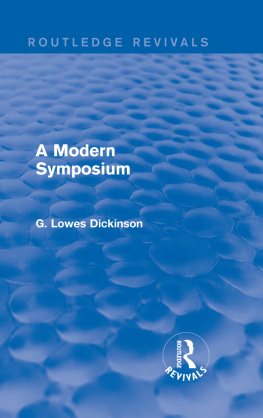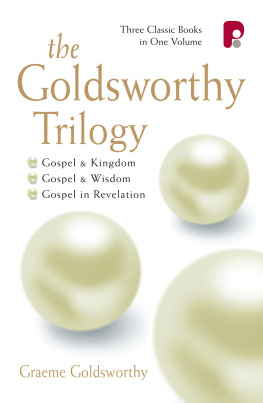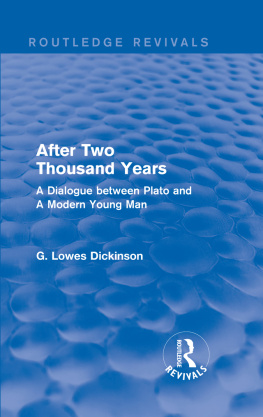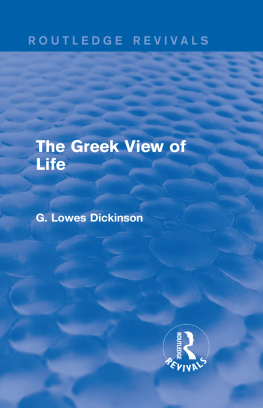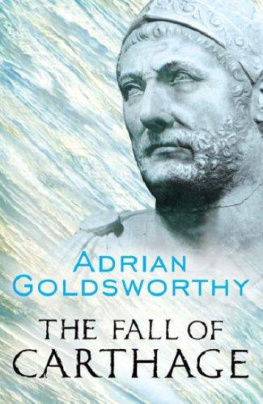Routledge Revivals
Revolution and Reaction in Modern France
First published in 1892, this book describes the development of political thought and political parties in 'modern' France. It starts by discussing the French Revolution of 1789 and closes with the Paris Commune of 1871. The book however is not written strictly in chronological order but rather focuses on explaining the general character of each successive period. It will be of interest to both the student, and the more general reader.
Revolution and Reaction in Modern France
G. Lowes Dickinson
First published in 1892
Second Edition in 1927
by George Allen & Unwin LTD
This edition first published in 2016 by Routledge
2 Park Square, Milton Park, Abingdon, Oxon, OX14 4RN
and by Routledge
711 Third Avenue, New York, NY 10017
Routledge is an imprint of the Taylor & Francis Group, an informa business
1927 George Allen & Unwin LTD
The right of G. Lowes Dickinson to be identified as author of this work has been asserted by him in accordance with sections 77 and 78 of the Copyright, Designs and Patents Act 1988.
All rights reserved. No part of this book may be reprinted or reproduced or utilised in any form or by any electronic, mechanical, or other means, now known or hereafter invented, including photocopying and recording, or in any information storage or retrieval system, without permission in writing from the publishers.
Publishers Note
The publisher has gone to great lengths to ensure the quality of this reprint but points our that some imperfections in the original copies may be apparent.
Disclaimer
The publisher has made every effort to trace copyright holders and welcomes correspondence from those they have been unable to contact.
ISBN 13: 978-1-138-95865-4 (hbk)
ISBN 13: 978-1-315-66112-4 (ebk)
REVOLUTION & REACTION IN MODERN FRANCE
BY
G. LOWES DICKINSON, M.A.
First published in 1892 Second Edition (practically unchanged) 1927
(All rights reserved)
Printed in Great Britain by
Unwin Brothers, Ltd., Woking
' , Z, ' , '
EURIPIDES: Troades
Preface to the Edition of 1927
FOR many years past I have been pressed to republish this book, which has long been out of print. I have hesitated to do so because I was unwilling to send it out without corrections and additions, which would probably have meant, in the end, rewriting. But since the demand still comes to me, since, apparently, no book has been produced which completely supersedes this, and since it is now clear to me that I shall never rewrite it, I have decided to reissue it. With the exception of the concluding chapter it is printed as it was, except for some few corrections. I have even reprinted the bibliographies, not because they are, or were, even at the time, the best, but because they indicate the sources on which I was then drawing. The last chapter, however, which contained merely my own reflexions, did not seem to me, on reconsideration, satisfactory either in form or content. I have therefore cut it down and added a few words to indicate the problem that faces the new generation.
Preface to the Original Edition
THIS book does not profess to be a history of Modern France. It is rather an attempt to describe the development of political thought and political parties there. I have not, therefore, made a point of narrating events in their chronological ordera task which has been accomplished by other writersbut have endeavoured primarily to seize and reproduce the general character of each successive period. For this purpose I have found ample material in the works referred to at the head of each chapter; and though I cannot doubt that I have made statements which it may be necessary to modify, yet I am not without hope that my account may be found, on the whole, to be sufficiently trustworthy. I will not say that it is impartial, for every writer has his point of view. Mine, I suppose, will be readily detected by those who do not agree with it, and in any case it is hardly for me to apologize for or explain it. I have written my book with a view to what I conceived to be the wants of the general public; but it will not, I hope, on that account be altogether unacceptable to students.
Contents
The Principles of the Revolution and their
Immediate Interpretation in Fact |
The Provisional Government and
the Republic |
The Constituent Assembly and the Social
Question |
The National AssemblyRevolution and
Reaction |
The Conflict between the PowersThe
Revision of the Constitution |
The Proclamation of the Republic and the
Government of National Defence |
Chapter I
The Revolution of 1789
Of the histories of the Revolution that I have consulted I have found that of M. Taine by far the most instructive; that of Mr. H. Morse Stephen is the most recent and the most complete in its information. The condition of France before the Revolution has been minutely analysed and described by Tocqueville ( L'ancien rgime et la rvolution ), by M. Taine ( L'ancien rgime ), and by M. de Broc ( La France sous l'ancien rgime, Paris, 1887). Its condition under the Directory has been examined by M. Felix Rocquain ( L'tat de la France au 18me Brumaire ).
THE REVOLUTION OF 1789
The history of modern France is the history of the Revolution of 1789. That Revolution is not yet completed; 1793, 1799, 1814, 1830, 1848, 1851, 1870 are so many dates of its advance and recoil. Becoming transformed itself in the process of transforming France, it has been gradually defining in practice its own theoretic ideal, limiting itself by the act of realization, and substituting for its airy vision of Utopia the solid and measurable structure of the Third Republic. That that Republic is not the term of the process will probably be admitted by anyone who has studied the history of parties and ideas in France, but it is the present halting-place and the present verdict of the facts on the scope and achievement of the movement of which it is the latest expression. With the Revolution, then, must begin, as with the Third Republic it must end, a book whose endeavour is to render intelligible the history of modern France. But to add yet another to the many summaries of that unsummable period would be beside the plan of the present work; it will be sufficient for its purpose to develop two points: First, what were the conditions from which the Revolution proceeded and by which its character was fixed; secondly, what were its actual achievements up to the date when it passed under the tutelage of Napoleon I.
The movement which took the form of revolution in France was the movement common to all Europe, of the transformation of feudal institutions into those of the modern State. At the end of the eighteenth century it had proceeded far in England. It had been started in Austria, but in France no step had been made. Yet in no other country was there greater need of change, and, what is more important, in no other country was the need so keenly felt. A public opinion had been created which was at once acutely critical of the actual and absurdly credulous of the ideal; which perceived with inexorable lucidity not only that grievances existed, both material and sentimental, but that these grievances depended directly on the political and social organization; and which yet, having access to no machinery by which it could make itself felt as reform, was compelled by defect of experience and power to distort its vision and waste its force over imaginary constructions in the air. It is the conjunction of these two conditionsgrievances dependent on political organization and opinion indignant but powerless for actionthat explains at once the fact and the character of the Revolution of 1789.





